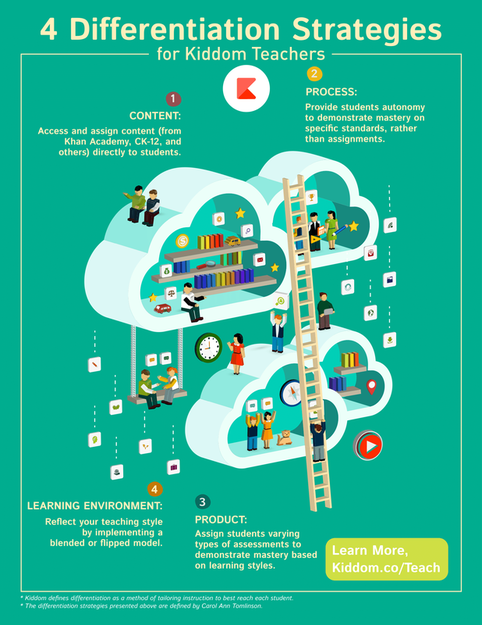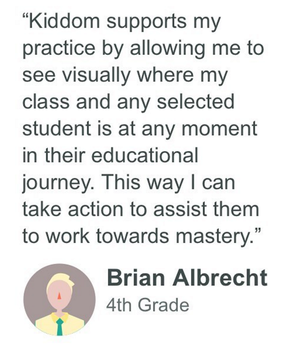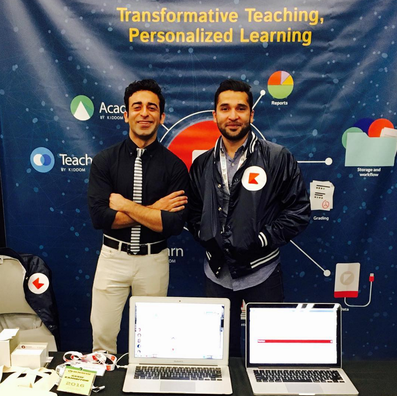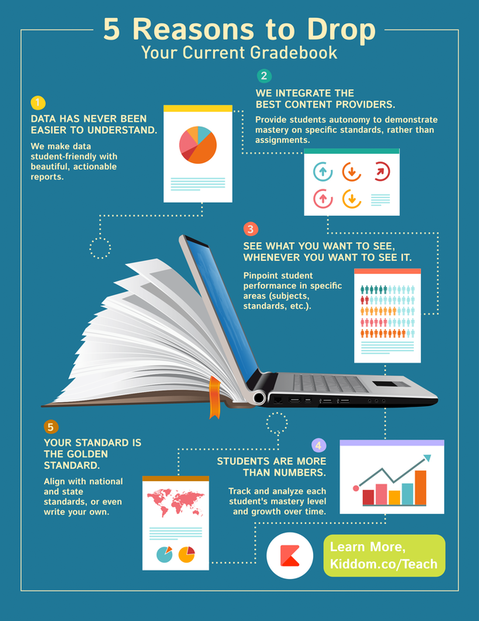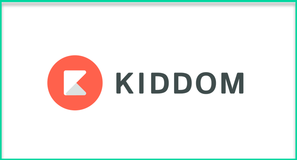
When I sat down to discuss Kiddom with their team, the first thing that came up was their educational philosophy, and why they see Kiddom as being beneficial. “Anyone could have created Kiddom, because there are so many teachers suffering from the same issues” says Kiddom Chief Academic Officer Abbas Manjee, a former NYC teacher.
As most teachers have seen, particularly those who are involved in education technology, there are an enormous amount of apps, resources, websites, lesson plans, and digital content available. While that’s all well and good, teachers are not particularly well known for having lots of free time to sift through these materials in order to find what works and what doesn’t. After spending 7 years in the K-12 classroom, I can certainly agree with this idea as well, that “so much of a teacher’s time is spent without enough time.”
Abbas went on to reflect on his days teaching at-risk students stating, “So much of the real meat of teaching happened when I had all the right resources in place. That’s when I could get my workflows working, and that’s when my students got engaged.”
But finding those exceptional resources and creating well-designed assessments around them is, and always has been, a time consuming and often frustrating task. That’s where Kiddom comes in.
Kiddom operates from the perspective of wanting to empower teachers. They want to be a resource that spreads from the ground up, where teachers find benefit, and convince their administrators to get on board, and not the other way around. As someone who has seen so many top-down initiatives fail due to lack of interest, buy-in, practicality, and countless other reasons, it’s always refreshing to see companies who believe that the voices that matter most in education are those of the teachers.
As a result of this, Kiddom’s standard plan for teachers will always be completely free. If districts or admins want to get more granular with their assessment data, or want to see big picture assessment data across schools, eventually there will be a paid plan for that. But the classroom side of the platform, the side that is specifically designed to help teachers, will always be free.
In addition to providing a space for helping teachers find high quality activities and assessments from 3rd quality providers (which can always be customized to individualized needs), Kiddom aims to help teachers improve their practices as well.
Kiddom employs curriculum specialists that are available to support teachers when they have questions or are looking for specific resources. Additionally, when a teacher selects a resource to use, they will be encouraged by the app to customize it, improve upon it, and share it back out so that others can benefit as well.
These curriculum specialists are also working to curate the best of the best for teachers at all grade levels. They’re building units based on the most effective resources across Khan Academy, CK-12, and other content providers, and they’re creating new resources when they find anything lacking.
These new units will be available in conjunction with a collaboration feature which will work similar to Google Docs and which will allow teachers to share, discuss, collaborate, and build off of each other’s ideas. For me, this is one of the most powerful upcoming features to look forward to, and I think it’s going to be an enormous benefit to anyone using their system.
The fact that all of this is available for free, and the fact that Kiddom is so squarely seated on the side of teachers, makes me a big fan of their service and what they have to offer the edtech space.
In closing, Kiddom is founded on a simple premise. To help empower teachers by giving them more time to see, act on, and make improvements based on standards-aligned student performance. This is accomplished in a lot of different ways and with a lot of great resources, but it is done in an incredibly simple and user-friendly interface that I believe offers significant benefit to the K-12 classroom.
If you’re interested in learning more, you can always sign up for a learning webinar across a variety of different topics from implementing Kiddom, standards-based grading, and using their partnership content. Or, if you want to learn more about the technical side of the app, you can check out our review of the service as well.

